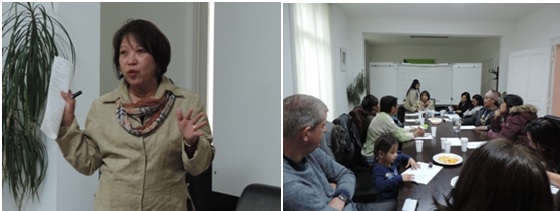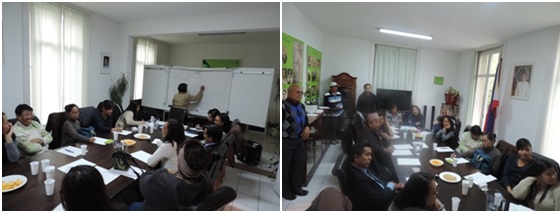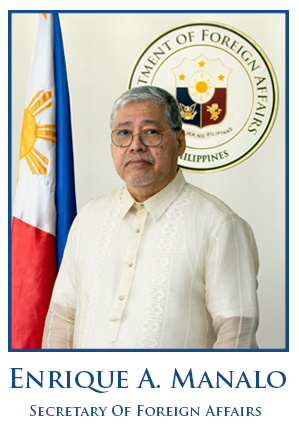Philippine Embassy in Berne conducts a Seminar-Workshop for newly-arrived Filipinos in Switzerland
The Philippine Embassy in Berne conducted a seminar-workshop entitled, “Empowerment through Social Integration” on 25 October 2014. Ms. Anny Hefti, trained psychologist and long-time resident in Switzerland, was the resource person and facilitator for the event.

Photos (L-R): Ms. Anny Hefti facilitates the workshop; attendees exchange views on issues raised during the workshop
The seminar, which is part of the Embassy’s Gender and Development (GAD) projects, aimed to help newly-arrived Filipinos in Switzerland, including Embassy personnel, to adjust to the culture of their host country and to successfully integrate in the Swiss society.

Photos (L-R): participants share their thoughts on topics discussed at the workshop
Around twenty (20) participants attended the seminar. The attendees were a mix of au pairs, Filipina women who were recently married to Swiss nationals, and a few long-time residents who are married to Swiss.
The seminar provided a platform for the newly-arrived Filipinos to discuss their issues and concerns at work and in their relationships with their Swiss husbands. It also became a forum for sharing of experiences on how to better understand the Swiss culture, especially within the context of marriage and work.
Among the learnings from the seminar include the importance of learning the local language and their nuances, which is an imperative for survival and integration. Learning the local language minimizes the risk of misunderstanding at work (in case of au pairs) and at home (in case of those married to Swiss); levelling off their expectations and adjusting to the culture of their new environment; time management, which is very important among the Swiss; and need to be open and flexible especially on their expectations from their Swiss partners in the case of the newly married.
The participants also raised the importance of having a more detailed briefing on what they have to expect upon arrival in their host country, and should this not be possible, the conduct of in-country orientation upon arrival at their country of destination; learning the relevant laws and institutions in their host country that can help them better understand their rights and entitlements as individuals and as foreigners. END


